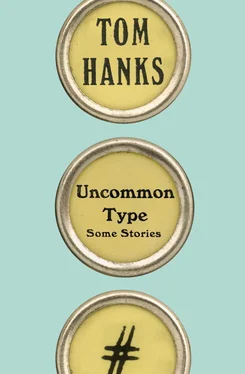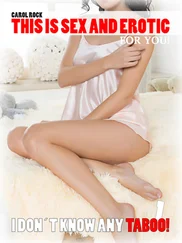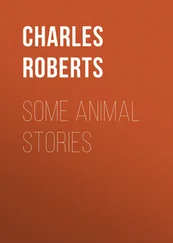“Okay,” Bob said. “Tell me everything.”
She opened up about, well, everything, cued by Bob’s sympathy. He uttered his support at every story, every anecdote: New York was the only place for Sue to be! Shelley and her “yeah, okay” attitude were to be expected from such a see-you-next-Tuesday ! The subway was survivable as long as you never made eye contact with anyone. You found an apartment by reading the Rental classifieds in the Times and The Village Voice, but you had to get them early, at seven in the morning, and then you had to hightail it to the apartments with a bag of donuts because the super would always open up for a pretty girl who shared her donuts. From there, they moved back in time, reminiscing about the summer seasons in Arizona, comparing the backstage gossip to that from the front office, the love affairs gone horrible, and how Sue thought Monty Hall was a solid professional. Bob spilled his tea, laughing.
“Have you had any lunch?”
“No. I was going to treat myself to a slice of pizza pie.” At half a dollar per wedge, pizza had become Sue’s standby meal at midday.
“Let me go out for deli. You strip out of that uniform of yours and take a hot bath. I’ll leave you a robe I stole from a spa in the desert, then we’ll eat like middle class Jews.”
In the kitchen, he removed a large butcher board that covered the bathtub. Why a tub was in the kitchen had something to do with the original plumbing of the old building. He turned on the water, so hot plumes of steam hazed the security-gated window, and laid the robe across a chair. A delicate wicker basket held scented soap, shampoo, conditioner, an organic sponge, and a pitcher to fill with water and rinse with.
“I’ll take my time. You soak.” Bob locked two of the front door locks behind him.
After the weak, abbreviated showers uptown, Sue relished the feel of hot water on her skin and the pouring of water over her head. It was funny, taking a bath in a kitchen like this, but she was alone, the bath was like the hot tub on the Gliebe family patio, and Sue scrubbed, rinsed, and soaked her way to being truly, wonderfully clean . She was still soaking when the front door locks were opened and Bob returned carrying a large bag of deli.
“Still naked, I see.” Bob didn’t bother averting his eyes, and Sue didn’t mind. If “backstage was no place for modesty,” as they said in the Theater, Bob Roy’s kitchen was no place for blushing.
Sue’s now pale limbs were swimming in the man-size terry-cloth robe as she sat at the coffee table, running a comb through her damp hair. Bob set down some half sandwiches, small cartons of soup, coleslaw, pickle wedges, and cans of what was called seltzer and, over lunch, they talked about movies and plays. Bob said he could get her free tickets to the lousy shows on Broadway and cheap seats for the hits, so there would be no more evenings in New York with nothing to do but be unpopular on Rebecca’s couch. He’d call around to his friends for tips on agents who could arrange a meeting or two, no promises beyond that. He knew a few rehearsal pianists who would help with her audition numbers, with sheet music, transposed for her key. “Okay, titmouse,” Bob said, clapping rye crumbs from his fingers. “Let me see this résumé of yours.”
Sue pulled the old version out of her purse as Bob grabbed a pencil. After a quick once-over, he drew a big X on the paper with a sigh. “Standard. So standard.”
“What’s wrong with it?” Sue was hurt. She had worked hard on the thing. Her stage career was on that piece of paper. All the plays she had done in high school, including the one-acts, asterisked with *Thespian Society Award*. Every performance she had ever given at the ACLO, from member of the chorus right up to last year’s turn as Nellie Forbush in South Pacific. Five seasons and eighteen musicals! The productions at the Gaslamp Playhouse Dinner Theater—Emily in Our Town and the Ensemble in Zoo Story . The Narration she did for the Diabetes Walk-a-thon public service message. Every performance Sue Gliebe had ever given was listed on that résumé.
“As we jaded queens say, ‘Nobody gives a shit, honey.’” Bob stood up and went into his bedroom. From under his bed he pulled out an old typewriter protected by a clear plastic dustcover. “This beast is so heavy. I really should keep it out. Make space on the table, would you?” Sue moved away the deli leftovers and a stack of books.
Bob’s typewriter was nearly as big as his grandmother’s radio, a black metal antique, fitting for an apartment crammed with old, peculiar things. The typewriter was a Royal, with glass sections on the sides, like opera windows for any titmouse that might take up residence among the keys.
“Does that still work?” Sue asked.
“It’s a typewriter, child. Ribbon. Oil. Paper. Happy fingers. That’s all it needs. This, however…” He disdainfully picked up the record of Sue’s life’s work, holding it with two fingers like it was rancid melon rind. Then he grabbed a pencil and used it as a pointer. “You list only the roles you’ve played, not the high school you went to or the Gasbag Amateur Play School Diner. The only pro credit you have is the Arizona CLO, so you can’t lie about those credits. You put it at the top in big capital letters, then list the best plays and the best roles first, not in the order you performed them. If you were in the chorus, name your part like ‘Ellen Craymore’ or ‘Candy Beaver’ toward the bottom. If anyone questions you, then say you were in the chorus. These other roles? In high school and all that?”
“Yes?”
“They go under the heading ‘Regional Theater.’ Embellish. Don’t tell them the plays were one-acts. Don’t tell them you won any trophies. Don’t tell them they only ran two weekends. The play. The role. You were a working actress in the Region of Pile-of-Rocks, Arizona, and you have the credits to prove it.”
“Isn’t that lying?”
“They don’t care.” Bob took his pencil to the résumé again. “Oh, look! You’ve done commercials! Valley Furniture! The disease of the month! No, no, no. You put right here, ‘Commercials on Request.’ They will see that you have done commercials but will request not a single one.”
“Really?”
“Trust Bobby Roy, Sue. The great ones all do. Now, this last bit, this sad paragraph listing your Special Skills . This is bullshit to anyone on the other side of the casting desk. Notice I did not say ‘couch.’”
“What if they’re looking for special skills?”
“They ask you. But this list? Guitar. You know three chords, right? You can juggle. Three oranges for a few seconds, right? You roller-skate. What kid doesn’t? You can ski and ride a bike and skateboard. BFD! Did you actually put Sign Language here?”
“I learned some for Tribal Heritage Day. This means ‘awkward.’”
Bob gave the one bit of sign language he knew. “This means ‘bullshit.’ Understand that your résumé will receive all of five nanoseconds of attention. Casting people look at your picture, then at you to see if it matches. Are you actually a girl? Do you have blond hair? You sporting a rack of any significance? If you’re what they are looking for, they turn over to your résumé, scan your credits and your lies, then scribble down this magic word: callback. ”
Bob rolled paper into the old Royal, adjusted the margins and tabs, and within minutes had typed out a crisp, clear, and clean résumé that made Sue look like she was as experienced a dreamer as ever hopped a bus to the big city. She could boast of thirty roles. The one thing missing from the paper was her name at the top.
Читать дальше











